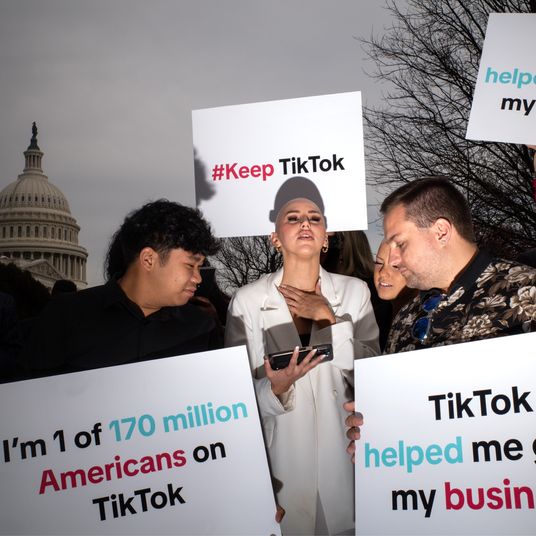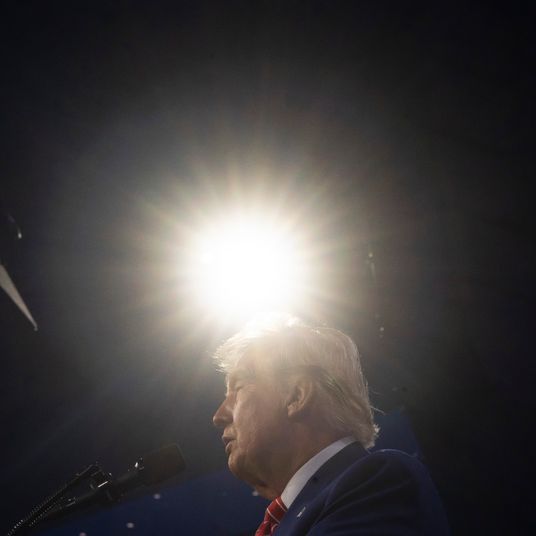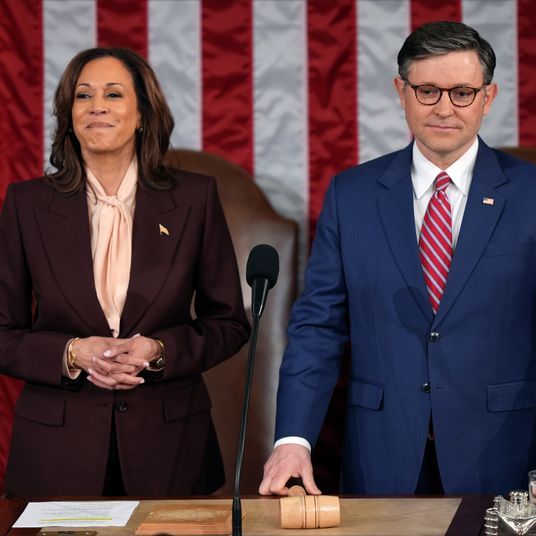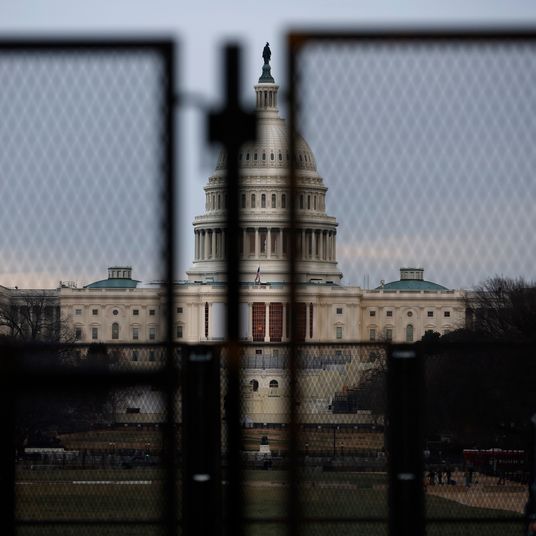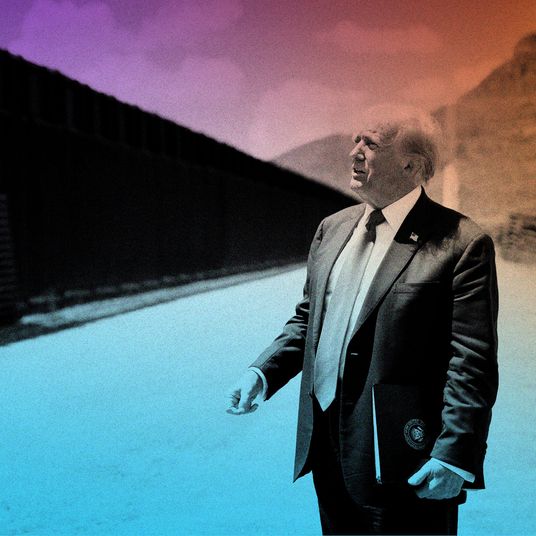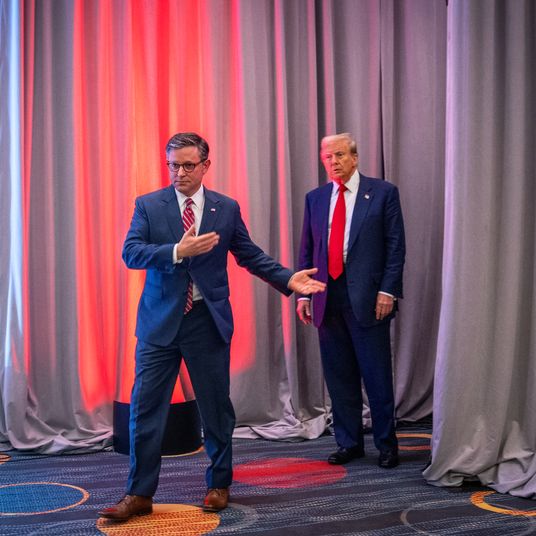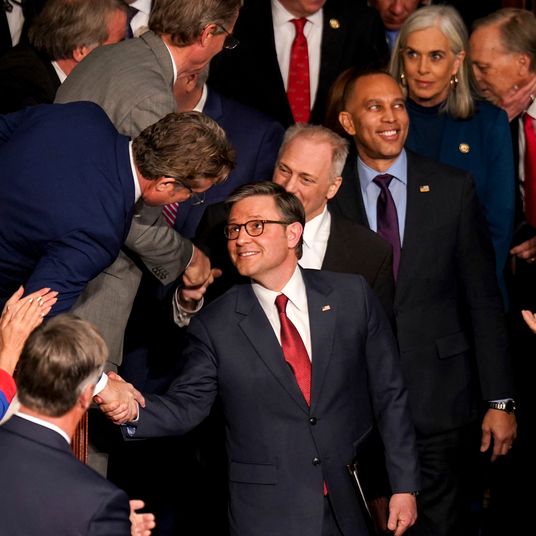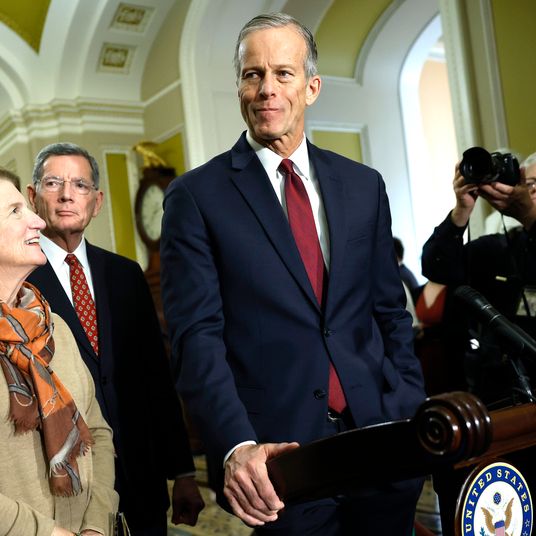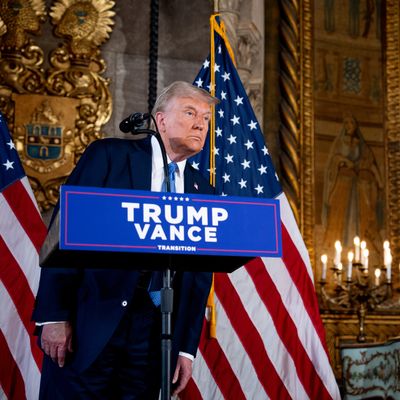
It has been obvious from the moment the GOP narrowly won control of the House and the Senate in the 2024 election that budget reconciliation would be the primary strategy for implementing Donald Trump’s legislative agenda. Reconciliation bills can be enacted on party-line votes, and Senate Democrats can’t use the filibuster to block them. This is how Republicans enacted Trump’s tax cuts in 2017, and how Democrats enacted Joe Biden’s American Rescue Plan in 2021 and his Inflation Reduction Act in 2022.
Reconciliation bills can be enacted at least twice a year. So the big strategic question for Trump and his congressional troops is whether to pursue one bill or two. If they try to pass Trump’s entire agenda in one fell swoop, the lone bill would include a massive boost in immigration-related funding to support his mass-deportation plans, as well as a new tax-cut package (this would likely also include a huge spending reduction or increased tariffs as “pay-fors”). The other option is to pursue two bills, with border funding going first.
Republicans have been split on tactics. The Senate GOP generally favors two bills, while House members would prefer one (mostly because the tiny GOP margin in the lower chamber might make two bills an unacceptably heavy lift). But on January 4, House Speaker Mike Johnson announced that Trump had told him he wanted one “big, beautiful bill” on his desk by May. Subsequently, Trump seemed to confirm that decision in a Truth Social post:
Members of Congress are getting to work on one powerful Bill that will bring our Country back, and make it greater than ever before. We must Secure our Border, Unleash American Energy, and Renew the Trump Tax Cuts, which were the largest in History, but we will make it even better — NO TAX ON TIPS. IT WILL ALL BE MADE UP WITH TARIFFS, AND MUCH MORE, FROM COUNTRIES THAT HAVE TAKEN ADVANTAGE OF THE U.S. FOR YEARS. Republicans must unite, and quickly deliver these Historic Victories for the American People. Get smart, tough, and send the Bill to my desk to sign as soon as possible. MAKE AMERICA GREAT AGAIN!
Republicans in both congressional chambers saluted and prepared to carry out the 47th president’s orders … until he cast doubt on them the very next morning in an interview with conservative gabber Hugh Hewitt:
DJT: Well, I favor one bill. I also want to get everything passed. And you know, there are some people that don’t necessarily agree with it. So I’m open to that, also.
… We have a lot of respect for Senator Thune, as you know. He may have a little bit of a different view of it. I heard other senators yesterday, including Lindsey [Graham], talking about it. They’d prefer it the other way. So I’m open to either way as long as we get something passed as quickly as possible.
Trump’s waffling, which also betrayed significant ignorance about the implications of this crucial threshold decision, has reopened the door to advocates of the two-bill strategy, who can be expected to tell him he could lose momentum (particularly on the immigration front) if Congress and the country have to wait around for a huge single bill to be put together at some point in late winter or early spring. According to the Washington Examiner, Senate leaders plan to meet with Trump on this subject later this week when he’s in Washington for Jimmy Carter’s state funeral. In the meantime, Thune and Johnson are meeting in search of common ground on legislative strategy; Johnson is expected to explain to his Senate counterpart how hard it will be to get one, much less two, highly controversial bills through the House, particularly after Trump’s inauguration when two House members (Elise Stefanik and Michael Walz) leave Congress for administration positions. Politico suggests all this Trumpian waffling reflects his reluctance to “play referee” over parliamentary details, a subject he has never, ever shown much interest in over the years:
Trump made his wishes known publicly only after a 36-hour period where the long-simmering debate over legislative tactics boiled over and had many Republicans questioning if their top leaders could ever get on the same page.
The weekend’s wrangling not only spotlights the legislative tug-of-war already underway between Johnson and Thune but also Trump’s aversion to playing referee. Both Sunday’s posting and last week’s involvement in the speaker race show that Trump will have to take a persistent, hands-on approach to keep his legislative agenda on track.
Democrats, of course, are enjoying all this confusion as a sign that the GOP trifecta isn’t necessarily going to operate any more efficiently than the one Republicans held in 2017, when they failed to obtain the Senate votes to pass a reconciliation bill that would have repealed the Affordable Care Act and gutted Medicaid, among other provisions. Democrats also recall their own struggles with legislative strategy in the early days of the Biden administration; among other things, Republicans may soon experience the same problems they did in with securing approval by the Senate parliamentarian for inclusion of changes in immigration law in a budget reconciliation bill.
What is very clear is that time’s a-wasting for legislative action; proponents of the two-bill strategy were talking about passing a budget resolution to authorize a reconciliation bill even before Trump’s inauguration. The last thing newly installed Senate Majority Leader Thune and barely elected House Speaker Johnson need is an extended battle over the most basic questions of how they will go about doing what Trump wants. They need him to make a call and then stick with it. We’ll see if this man, who seems more concerned about the trappings of his inauguration than with the policies it will inaugurate, can remain focused long enough to give his supine party the necessary direction.
This item has been updated.
More on politics
- Pope Francis Makes Trump Critic New Washington Archbishop
- The Hard Right Isn’t Mike Johnson’s Biggest Problem Anymore
- Trump Is Wrong: Jimmy Carter Didn’t Lose Due to Panama Canal














